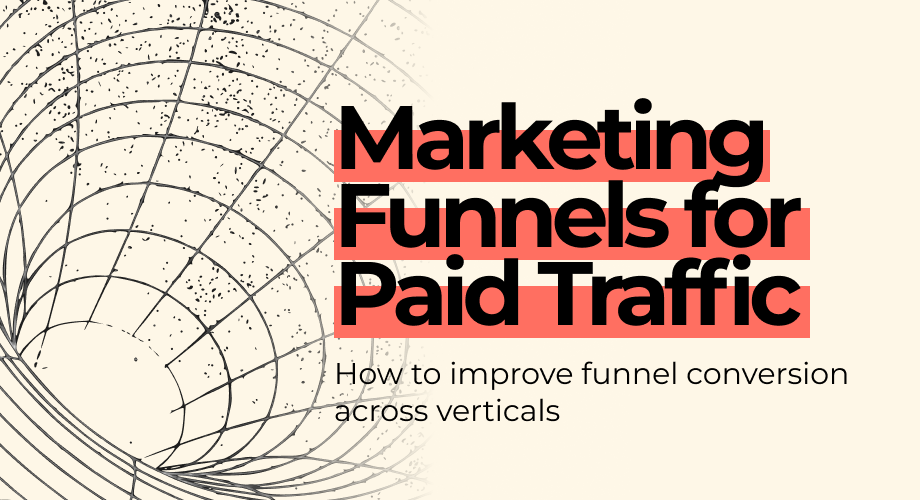What is affiliate marketing?
Affiliate marketing is the activity of promoting products or services owned by another person or company for a fee. In other words, the partners finds the product they are interested in, advertise it to other people, and receive a portion of the profit from the seller of the product when it is sold. The cost of purchasing a service or product through a partner is similar to the cost of purchasing directly from the product owner. In other words, the sale will bring the seller less money than if he sold it himself. But the partner helps him attract a lot more customers and make more sales, which allows the product owners to earn more.
What is affiliate fraud?
This is any type of illegal activity aimed at obtaining profit from the affiliate program fraudulently. Fraud experts report that affiliate fraud is one of the most costly threats to e-Commerce businesses. The ability to make easy money encourages unscrupulous partners to find ways to undermine the rules and tools that exist to prevent fraud in your partner network. And the lack of fraud checks by program managers allows fraudsters to destroy the advertiser's return on investment and success in the partner channel. Knowing why and how fraud occurs, you can take steps to prevent it.
How do affiliates commit fraud?
Let's look at some examples of fraud related to partner programs.
First, let's look at typical schemes involving fraud against an affiliate partner.
1. Traffic theft
The partner program advertises dietary supplements for athletes. It attracts partners with good prices and the availability of rare goods. In fact: the program steals partner traffic by redirecting it to another site that sells the same products (receiving commissions from sales). It is quite natural that the partners do not get anything from this.
Danger signals for partners: higher commissions compared to similar programs in the same area.
So, carefully study the seller's website before joining the affiliate program. View ads, affiliate links, alternative offers, and more – anything that can "steal" your traffic.
2. Confusing offers
You are offered a huge number of privileges if you join the affiliate program and promote the product, but in reality you are only wasting time and money, not getting anything in return.
If you feel that the product may be a dummy or fake, there is a chance that the affiliate program will also be fraudulent. It is important to believe in what you are helping to promote.
3. No payments due to "technical problems”
Some affiliate programs try to look honest and not pay due to "constant technical problems". Thus, most partners will give the program a "second chance" and continue to promote the product for free. Stay away from anything that offers quick profits and suspiciously high returns.
4. Partner's ban before payment
Some affiliate programs pay you money until you start earning a lot. After accumulating a significant amount of money, you will be banned forever. Thus, all the efforts invested in the construction of the partner site are in vain.
Don't let yourself be lured by high commissions. Work only with reliable and proven partner networks.
5. Partner programs with payment for participation
Participation in partner programs must be free of charge. The seller earns money by selling the product, and the partner network receives a percentage of sales. The fact that you have to pay to join the program means that the product does not make a profit and the only way to make money in any way is to take a fee for participation in the partner program.
Now let's look at the schemes related to deception of merchants.
1. Fake appeal.
In this case, partners fake a conversion (click, fill out a form, sell, etc.) and get their commission. Do this with bots or manually.
2. Duplicate content from another partner.
Affiliated publishers are paid for conversions produced by their original content, so unscrupulous partners can simply clear the sites of legitimate publishers and re-publish the original content in an attempt to redirect traffic to their sites, and then get credit for any conversions.
3. Fake download.
This type of scam is associated with the installation of applications. Affiliate partner uses bots to click on the ad without user interaction. So if the user then installs an app for real the affiliate company will still get a commission even though their ‘marketing’ efforts had nothing to do with the user installing the app.
Negative effects of affiliate fraud
At first glance, the negative consequences of affiliate fraud are clear. It eats up your profits and drains your marketing budgets. But there are also less obvious consequences of partner fraud .
Loss of confidence in affiliate marketing. This can force advertisers to stay away from using an effective marketing tool, and deprive publishers of revenue.
Wasted time and reduced productivity.
Incorrect strategies because of the low indicators and distorted data. The number of clicks, leads, and installs a campaign generates often influences the tools a marketer chooses during subsequent campaigns. Invalid data can disrupt future campaigns by forcing advertisers to commit funds and draw attention to the wrong areas.
Identifying Affiliate Fraud
Here are some signs that allow you to identify affiliate fraud.
Here are some simple ways to prevent fraud. First, abnormally high, suspiciously low, or absent activity in your app. Second, if the company is going too well (For example, the average conversion rate for all partners is 20 percent, but one partner consistently provides half). Third, it may also be suspicious that the campaign goals were achieved suspiciously easily, even if you changed them and set a very narrow target audience. Fourth, you get a lot of traffic, but no sales. Fifth, there is an abnormal increase in chargebacks when paying for purchases with credit cards. Fraudulent partners can make purchases using stolen credit cards(the owner of products pays out a commission to a parner only to receive a chargeback or the product returned later on). Sixth, fraudsters often enter invalid information about customers in an electronic form. Thus, when you try to contact your clients, it turns out that they don't know anything about you.
Protect yourself from affiliate fraud
Use these methods to protect yourself from fraud.
- Manual approval of each partner. Although it takes a long time, the method can be effective.
Make sure that partner websites match your brand and meet your brand standards. Check if they look like a farm.
Update your partner terms and conditions. When you do this, send emails to all your partners announcing changes to your terms and conditions and specify the date by which they should bring their promotional efforts in compliance to your updated terms. Honest partners will comply with your new terms and conditions. BrandVerity is one of the useful tools for detecting fraud, can monitor for keyword PPC violations, aid in your fraud check efforts, ensure that your affiliates are complying with all of your policies.
- Use your data to detect fraud
This is the most powerful fraud detection tool.
Use your data to view referring URLS and visit suspicious pages that you don't recognize. If you notice multiple redirects, it may mean that the partner is trying to hide the real traffic source from you.
- Use Sub-affiliate networks. These networks will give you access to many additional partners. However, you have less control over which partners you allow into your program, since they can always re-apply to one of these sub-partner networks.
- Learn the IP addresses of your clients. If multiple transactions are received from the same IP address, this may mean that one person is placing multiple orders using stolen credit cards. It will be good if you verify the authenticity of these transactions.
- Check data. If you notice an unusually large spike in activity from a partner, it's suspicious. Signs of fraud include abnormally high click rates, low conversion rates, and click-to-action transition times that don't match your usual parameters.
So, to prevent fraud, regularly monitor your data. If you find signs of fraud, document the evidence and send the partner a warning about the violation. In the worst case, stop working with an unscrupulous partner. We also recommend creating a black list of partners.


